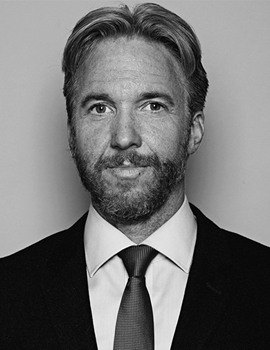What are clients in Sweden now demanding from their law firm of choice?
Our legal services increasingly focus on handling complex matters, which in part is a result of the increasingly complex legal matters faced by clients, but also due to increased digitalisation as simpler legal services and several types of agreements are getting more and more standardised.
There is awareness among clients of the need to reduce costs and do more
with less. Clients are skilled and knowledgeable procurers of legal services, and processes through which law firms submit competitive bids for legal services has become more mainstream.
This results in both stiffer competition and increased opportunities. Clients are requesting tailored, business-oriented advice and look for a strategic business partner, not just a legal expert. Our clients request a more personal contact.
We always look to explore ways to ensure we can adapt our business and service to clients’ changing needs. As advances in technology revolutionise today’s legal landscape, the role of the lawyer evolves, and we continue to evaluate and introduce legal tech tools that can help us become more efficient, productive and competitive.
In respect of price models, we offer our clients alternative billing models such as fixed, flat, blended or capped fees as compared to the traditional billable-hours model.
How do you set yourself apart from the competition?
A personal relationship is key. Law is not an abstract practice. Irrelevant of how well someone does academically, at the end of the day lawyers work with people, on behalf of people, and the decisions impact peoples’ lives. We look to be our client’s long-term trusted advisor, assisting them in all aspects of business law. To achieve this goal, we offer a personal approach, attaching great importance in senior representation and dedicated teams for each assignment and every question.
Where is the work coming from, both domestically and internationally?
It is an exciting time to be involved in the Swedish tech scene. Spotify’s IPO and PayPal’s acquisition of iZettle add renewed domestic and international interest and capital to Sweden’s vital start-up scene. Sweden has a well-established tradition of entrepreneurial success, with reputable companies such as Volvo, Electrolux, Ericsson, IKEA and H&M, and is today viewed as one of the most innovative, connected and economically competitive countries in the EU.
This has helped build up an entrepreneurial ecosystem, which includes a layer of support from investors, government, universities, co-working spaces, meet-up and event organisers, legal and other advisers etc. The Swedish tech scene produces new generations of companies within a variety of industries such as fintech, cleanteach, automatous transportation, games, media, e-commerce, as well as health and beauty, which all attract attention from domestic and international investors.
Sweden’s real estate market has been red hot in recent years, helped by the strong economy and the central bank’s negative interest rates. Both residential and commercial property have risen rapidly in the last five to six years, but the property market in 2018 has slowed down. Q1 still saw continued high investments, although transaction volume was down compared to 2017. The main explanation for this is, however, supply shortage, as demand for properties is still high, with office properties being the favoured asset. Foreign investors continue to show interest for commercial real estate investment in Sweden, making up 24% of the market in Q1 2018. Generally, the growth in demand for specific legal services is largely in line with the general trends. As technology continues to develop and the economy becomes more digitalised, companies increasingly manage IP rights, as well as data, and use them to conduct business. In turn, we have seen increased demand for legal services regarding the protection and exploitation of IP rights, and following the introduction of GDPR and PSD 2 in May 2018 a rise in regulatory compliance matters regarding personal data.
The economy is still doing well and most signs indicate continued strength, with forecasts indicating that Sweden’s GDP will grow 2.6% in 2018 but then slow to 1.9% in 2019. After several years of strong growth, however, there is the possibility that a recession awaits, so it is important to prepare our business and client service offering for this.

